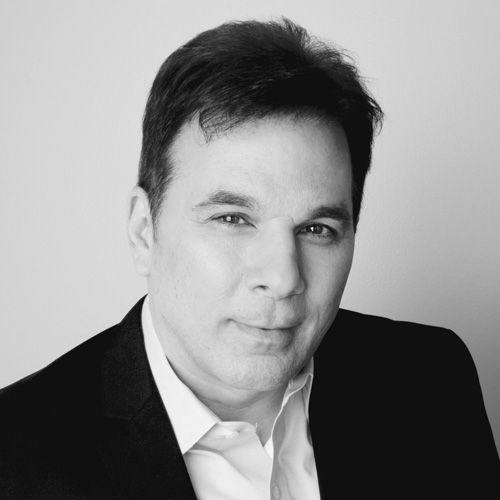Most law students have dreams of graduating, landing a job at a prestigious firm, and working as many brutal hours as required to make partner. Early on in law school, very few aspiring lawyers have the self-awareness and foresight to identify their natural skills and where they might be best put to use.
In this and several other ways, Abraham Ronai is the exception. Ronai earned his bachelor’s degree in mechanical engineering from Cornell University, and then he entered law school at Benjamin N. Cardozo School of Law in Manhattan. He passed the patent bar during law school. To help pay for his studies, Ronai then leveraged his education and engineering experience to land a part-time job prosecuting patents at Datascope Corp.
A publicly traded medical device company, Datascope Corp. was Ronai’s first introduction to the exciting world of medical technology. While there, he quickly recognized his affinity for business strategy and proceeded to focus his legal studies at Cardozo in areas that would benefit him there: business-related law, such as intellectual property, commercial litigation, international trade, and regulatory compliance. This gave Ronai a head start on his career, and instead of working at a law firm to find his particular calling within the law after graduation, he was invited to work in-house at Datascope Corp.
During this time, Ronai developed his legal skills and gained experience as a business leader. He also met a number of influential leaders and noticed common traits among them—traits that taught him the importance of partnership and the value of emotional intelligence. “It wasn’t about them; it was about the team and serving the greater good,” he says. “It was about knowing your stuff and soliciting the opinion of others, even the most junior person on the team. It was about thinking and rethinking one’s position on a regular basis, continuing to daily evolve as both a businessman and a person.”
Five years later, Ronai did take a job at a law firm in New York, and then another, where he gained valuable experience in outside legal practice and intellectual property law by serving multiple well-known clients. In the meantime, Swedish medical device company Getinge Group acquired Datascope Corp., and in 2010, the company called Ronai based on recommendations from his former colleagues. Getinge was looking for trusted counsel to run the legal department for one of its three flagship companies, so it inquired as to whether Ronai would move back in-house. He took the job, was promoted three times in seven years, and is now general counsel for all of Getinge Group.
“EQ is critical to success, and it is a quality we look for in all new hires in the legal group. It is important not to be wed to any particular position and to be more interested in engaging, listening, and learning.”
Managing the legal team in a highly regulated industry for a publicly traded global company with revenue of approximately $3.5 billion, operations in more than forty countries, and more than fifteen thousand employees involves an understandably wide scope of responsibilities. Ronai is involved in all material litigations and acquisitions, and he oversees all legal strategy, including managing Getinge Group’s intellectual property portfolio. His team participates in all business projects, for which they leverage their legal perspective and historical knowledge to proactively avoid legal issues. All this work is done in the name of advancing medical technology.
For a company that prides itself on constant innovation, intellectual property is essential. “It’s the secret sauce, so to speak,” Ronai says. “When our engineers innovate, we actively seek global patent protection and enforce our rights against ‘me-too’ competitors. There has also been a significant amount of work integrating patent portfolios for companies the Group has acquired over the years. We are actively paying attention to development cycles, and we are feeding the business competitive intelligence.”
Of the many things that Ronai has accomplished at the Getinge Group over the past seven years, it’s the trust he has developed between the legal and business teams of which he is most proud. “We have worked hard to reduce the complexity associated with important legal matters by distilling facts and presenting them in a way that’s simple to digest,” Ronai says, adding that his process de-layers complex legal decisions, which allows active and informed engagement of the business leadership. “They trust that we’ve given them everything they need and that our recommendations are based on thorough understanding of both our business and our industry.”
This approach alleviates a large burden on the business and has built healthy partnerships—a personal priority that Ronai established early in his career. “EQ, or emotional quotient, is critical to success, and it is a quality we look for in all new hires in the legal group,” he says. “It is important not to be wed to any particular position and to be more interested in engaging, listening, and learning. We all have emotions that help inform our actions, and it is impossible and not always constructive to subdue them. They keep us motivated and connected. The key is being conscious of and able to filter your own emotions so as to truly hear and consider another person’s perspective.”
Ronai’s technical expertise and strong work ethic are necessary for his success as general counsel, but his foresight, penchant for collaboration, and proven ability to build and lead healthy teams with high emotional quotients make Ronai stand out—even more so than his Ivy League education and New York law firm experience. And, fortunately for Getinge Group, Ronai’s early goal of becoming a medical technology industry executive was as exceptional as his leadership.


